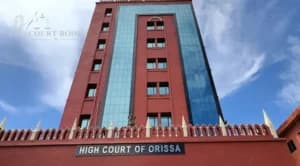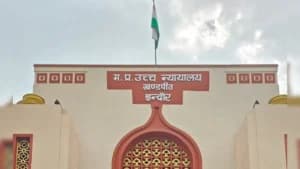The Gujarat High Court, in a significant ruling, clarified that the Labour Court's role is limited to enforcing pre-existing rights and not determining new claims. A single bench of Justice M.K. Thakker upheld the Labour Court’s decision to reject a recovery application under Section 33(C)(2) of the Industrial Disputes Act, 1947. The court held that in the absence of a pre-existing right, claims for additional wages, bonuses, and rent cannot be maintained under this provision.
Background of the Case
The petitioner, Jayanti Ishwarbhai Parmar, was employed under Sabbir Mohammed Zubair from February 2002 until he was terminated in December 2013. The Labour Court partially ruled in his favor, granting him 25% wages and other benefits. Later, Parmar filed a recovery application before the Anand Labour Court, seeking ₹3,03,750, which included back wages, bonuses, holiday wages, salary increments, and rent. However, the Labour Court rejected the application, citing the absence of a pre-existing right. This decision was then challenged in the Gujarat High Court.
Petitioner’s Arguments
The petitioner’s counsel, Mr. U.T. Mishra, argued that the Labour Court had already granted wages and benefits to his client, but the employer failed to pay for holiday wages, annual increments, and other allowances.
He cited K.S. Ravindran v. Branch Manager, New India Assurance Co. Ltd., (2015) 7 SCC 222, asserting that once termination is declared illegal, the employee is entitled to all dues. Additionally, he referred to Sanjit Roy v. State of Rajasthan, 1983 SCR (2) 271, arguing that denying minimum wages violates fundamental rights under Article 23 of the Constitution.
On the other hand, the respondent, Sabbir Mohammed Zubair, did not appear before the court, and no arguments were recorded on his behalf.
Read Also:- S.34 IPC | Prior Agreement Required for Common Intention: Supreme Court Ruling
Court’s Judgment and Reasoning
1. Labour Court’s Limited Jurisdiction
The Gujarat High Court reaffirmed that Section 33(C)(2) of the Industrial Disputes Act, 1947, is meant only for enforcing pre-existing rights, not for determining new claims. Referring to Bombay Chemical Industries v. Deputy Labour Commissioner, (2022) 5 SCC 629, the court stated:
"The Labour Court’s jurisdiction under Section 33(C)(2) is akin to that of an executing court and cannot be used to determine fresh entitlements."
2. No Specific Award for Additional Payments
The court found that there was no specific direction in the Labour Court’s decision for additional wages, bonuses, or rent. As these claims went beyond the awarded benefits, they could not be enforced through a recovery application.
Read Also:- Detailed Guide to SC/ST Act Appeals: Allahabad High Court Explains Why Section 14A is Mandatory
3. Distinguishing Previous Case Laws
The High Court clarified that the cases cited by the petitioner were not applicable:
- K.S. Ravindran involved complete reinstatement and full back wages, whereas the present case involved only partial back wages.
- Sanjit Roy dealt with forced labor and minimum wages, not with recovery applications under the Industrial Disputes Act.
4. Final Court Observation
The court ultimately held that since the petitioner failed to establish a pre-existing right, the Labour Court was justified in rejecting the application.
With this ruling, the Gujarat High Court clarified that Labour Courts can only enforce pre-existing entitlements and cannot determine fresh claims under Section 33(C)(2) of the Industrial Disputes Act. This judgment serves as an important reference for both employers and employees regarding the proper use of Section 33(C)(2) in wage recovery cases.















